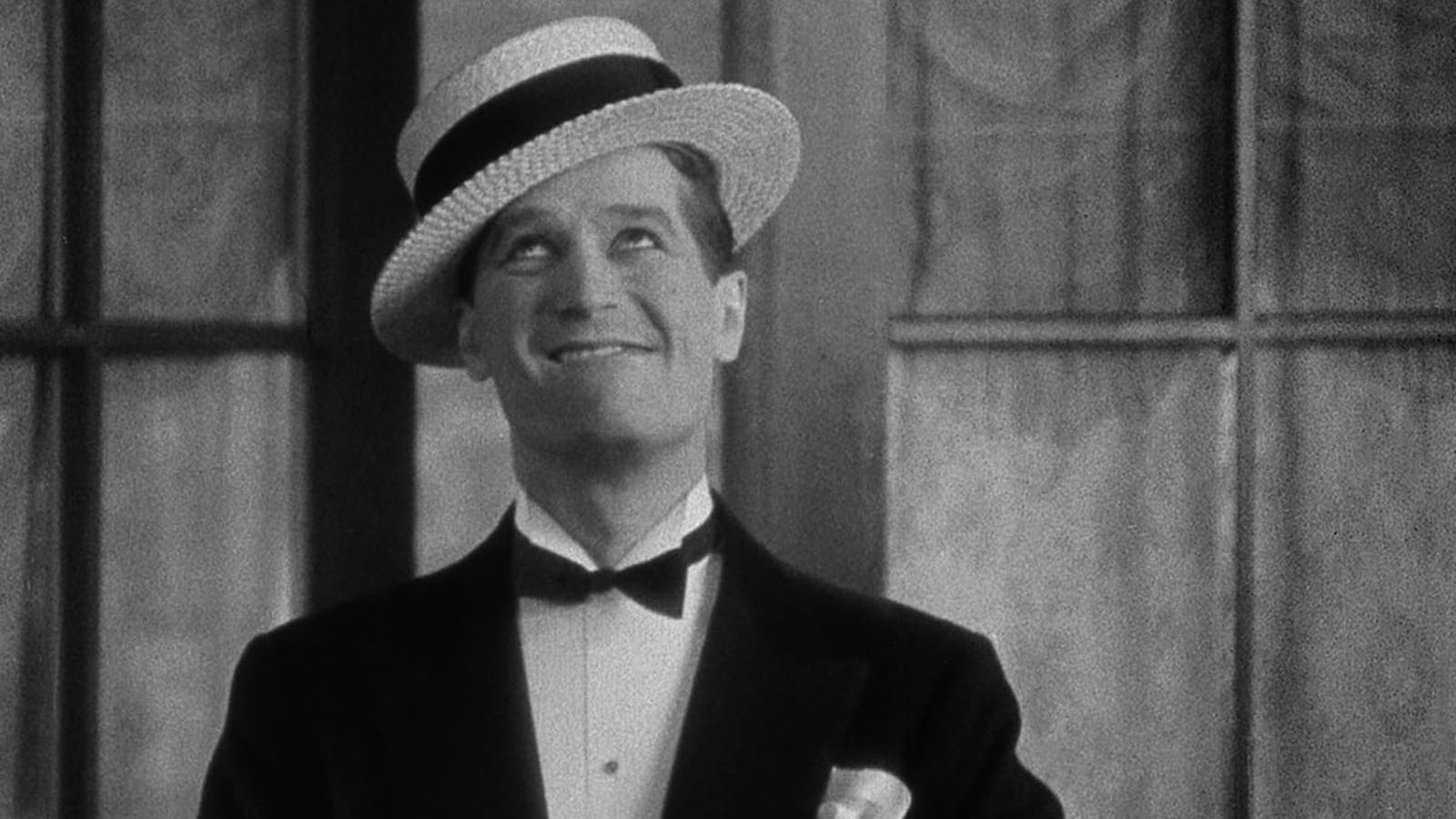 Maurice Chevalier in Ernst Lubitsch’s The Love Parade (1929)
Maurice Chevalier in Ernst Lubitsch’s The Love Parade (1929)
The second AFI Silver Classic Film Weekend will open in Silver Spring, Maryland, on Thursday afternoon with the U.S. premiere of a new restoration of The Love Parade (1929), Ernst Lubitsch’s “first sound film, his first musical, in fact, *the* first musical we would recognize as such,” as David Cairns points out in Senses of Cinema. “Here, the first on-screen dialogue that’s not sung is delivered straight to camera—‘She’s very jealous’—intimating that fourth walls are made to be broken. Lubitsch, who understood that eac…
 Maurice Chevalier in Ernst Lubitsch’s The Love Parade (1929)
Maurice Chevalier in Ernst Lubitsch’s The Love Parade (1929)
The second AFI Silver Classic Film Weekend will open in Silver Spring, Maryland, on Thursday afternoon with the U.S. premiere of a new restoration of The Love Parade (1929), Ernst Lubitsch’s “first sound film, his first musical, in fact, *the* first musical we would recognize as such,” as David Cairns points out in Senses of Cinema. “Here, the first on-screen dialogue that’s not sung is delivered straight to camera—‘She’s very jealous’—intimating that fourth walls are made to be broken. Lubitsch, who understood that each film requires its own pretense of reality, knew in this case that the pretense need only be paper-thin.”
Set in the fictional country of Sylvania, The Love Parade “depicts the battle of the sexes with lacerating, loose tongues,” writes Michael Koresky. Maurice Chevalier stars as “a bemused lothario count,” demonstrating “an exquisite comic timing that perfectly matched Lubitsch’s delicate balance of earnestness and satire. Cast opposite him in the film, as the sexually vivacious Queen Louise, was a twenty-six-year-old newcomer from Philadelphia named Jeanette MacDonald.”
Following the screening introduced by curator, archivist and film historian David Pierce, frequent Criterion contributor Farran Smith Nehme will present Karel Lamač’s Saxophone Suzy (1928), the recently restored comedy that screened this summer as part of MoMA’s Silent Movie Week. Nehme will wrap the Weekend’s first day with an introduction to the world premiere of a new restoration of Laurence Schwab’s Follow Thru (1930), musical romantic comedy boasting a Technicolor palette that Nora Fiore calls “a riot of coral and mint.”
Friday offers Roy Del Ruth’s The Mind Reader (1933), starring Warren William, “the man you called in the early 1930s for deliciously sleazy and cynical characters” (TCM’s Brian Cady); Michael Curtiz’s Female (1933), starring Ruth Chatterton as a woman who “dominates the board room by day, and eats men alive by night” (Sheila O’Malley); Tay Garnett’s Okay, America! (1932), based on the life of gossip columnist Walter Winchell; and Cecil B. DeMille’s This Day and Age (1933) on 35 mm.
Both Saturday and Sunday begin with programs of cartoons introduced by animation historian Jerry Beck. Further highlights include more Clara Bow in The Plastic Age (1925) and Kick In (1931), both introduced by Hollywood historian David Stenn (Clara Bow: Runnin’ Wild), and a Mary Nolan double feature: Tod Browning’s Outside the Law and Lewis D. Collins’s Young Desire, both from 1930 and both screening from 35 mm prints.
Anna May Wong stars in Richard Eichberg’s silent drama Song (1928), and Lewis Milestone directs The Garden of Eden (1928), which Matthew Kennedy, writing for Bright Lights Film Journal, calls “a briskly paced bonbon of mistaken identities complicated by Cupid’s arrows.” Oscar-winning visual-effects artist and film historian Craig Barron will discuss the wizardry behind Clarence Brown’s The Rains Came (1939), the first film to win an Academy Award for Best Special Effects, and the Weekend wraps with Brown’s Smouldering Fires (1925).
“The title suggests a lurid melodrama,” writes the great historian and filmmaker Kevin Brownlow, “but the film turned out to be, if not quite feminist, at least an intelligent, poignant, and beautifully photographed story about a forty-year-old woman in charge of a garment factory she inherited from her father. It opens with a meeting of department heads, as wittily observed as anything by Lubitsch.”
Don’t miss out on your Daily briefing! Subscribe to the RSS feed.